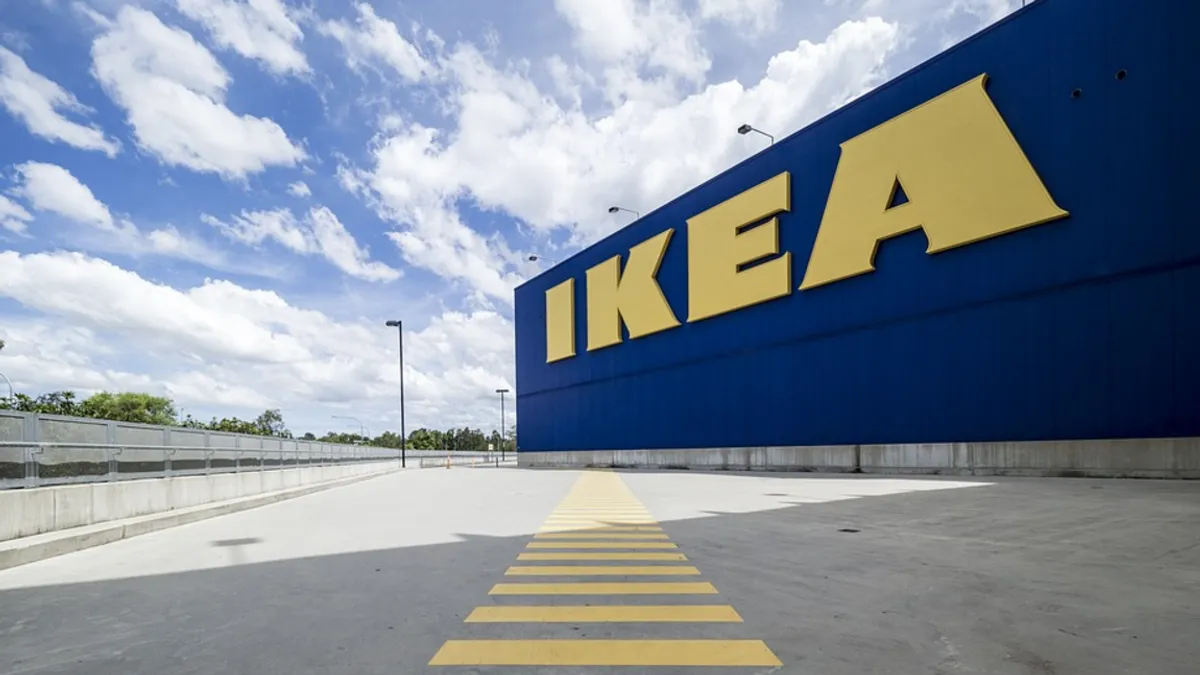Dive Brief:
- Ikea is cutting 7,500 jobs in a shift towards smaller stores and a greater share of online sales, reported CNN Business. The owner and operator of 367 of Ikea's stores, Ingka Group, said the Swedish furniture retailer is cutting 5% of its global workforce of 208,000, with the cuts mostly being administrative and support jobs.
- The staff reduction reportedly could also create 11,500 new jobs, a net gain of 4,000 positions, and lead to 30 new smaller stores, Ikea told CNN Business. The company added that fewer than 75 jobs would be eliminated in the U.S., according to the report.
- Ikea plans to upgrade its digital business to increase online sales and test new store ideas to find out what customers want from brick-and-mortar establishments, Fortune reported, especially amid the bankruptcy of Toys 'R' Us and the uncertainty around brands like Sears. In 2020, Ikea said it plans to open its biggest store ever: a 700,000-square-foot facility in the Philippines, Fortune said.
Dive Insight:
The news is a reminder that, as companies reorganize and adjust their business models, their efforts might need to include cutting staff. Ikea's announcement is similar to the earlier example set by Starbucks, which announced an upcoming round of corporate layoffs in late September. Both organizations have said they are setting their restructuring efforts around changing business and consumer trends.
One key trend is that of organizational 'agility' — defined as the ability to adapt, renew and innovate in a rapidly changing environment, according to analysts at McKinsey — and HR may want to pay attention to the role agility could play in making personnel decisions. More than 80% of C-suite executives in a recent survey said they view agility as the most important characteristic of a successful organization.
As for new jobs replacing old ones through layoffs, attrition or automation, HR will need to plan for any training that incoming jobs might require in addition to implementing recruitment strategies to attract workers who can fill new positions. Reskiling and/or upskilling might be necessary in order for workers to remain on staff after a reorganization.
Employers will, of course, need to offer competitive pay and benefits to attract candidates with the right skills for incoming jobs. Ikea, for example, provides paid parental leave to all its workers, regardless of how many hours they work. According to an Unum poll, paid parental leave tops all other benefits as the most-desired offering among workers and job seekers.














